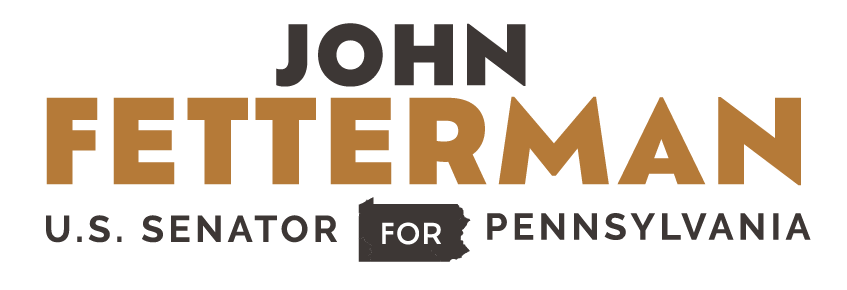WASHINGTON, DC – Pennsylvania U.S. Senator John Fetterman this week introduced the Strengthening Local Meat Economies Act. This critical legislation aims to be a countervailing force against out-of-control corporate concentration in meat industry sectors. It would offer critical investments in rural economies across the country by supporting small farmers and ranchers directly.
Currently only a small number of huge corporations control the vast majority of the U.S. cattle, pork, and poultry supply, including 25% of the USDA’s supply. With this much consolidation in the industry, it is increasingly difficult for small farmers to compete. The USDA purchases over $1.4 billion in meat per year, and this Farm Bill is an opportunity to consider how the federal government invests in small farmers and ranchers directly. This is made more pressing after the parent company of JBS—a U.S.-based meatpacker—was found guilty of bribery in Brazil. Despite this, USDA and other federal agencies continue purchasing from JBS. Diversifying and increasing the number producers and buyers would result in a more resilient market and make the supply chain more healthy.
“It is critical for us to take on corporate consolidation and monopolies in every market, including the agricultural and livestock economies. I came to Washington to fight for a level playing field for all, and that’s what the Strengthening Local Meat Economies Act will do. We can and must support smaller farms who are playing by the rules and feeding our communities,” said Senator Fetterman. “This bill will help local livestock producers and buyers keep up with the big players and create a more equitable meat economy.”
The two main efforts of the Strengthening Local Meat Economies Act are 1) to redirect meat procurement away from dominant meatpackers to local processors and 2) to develop digital meat exchange platforms. Redirection of meat procurement to local processors will position the federal government as an “anchor customer” to those regional meat processors that are currently receiving federal investments, ensuring their long-term competitive viability, while partially disinvesting the federal government from supporting dominant meatpackers through its procurement dollars. The development of digital meat exchange platforms that are openly accessible to small producers, local processors, and governmental and private institutional buyers, will address multiple market infrastructure gaps created by corporate concentration that currently exist in regional independent meat economies.
The Strengthening Local Meat Economies Act is endorsed by the PA Farmers Union, Rural Advancement Foundation International-US, Abattoir Associates, Inc dba Rising Spring Meat Co., American Economic Liberties Project, American Grassfed Association, American Sustainable Business Network, Berkshire Agricultural Ventures, Buffalo River Watershed Alliance, Bull City Farm, Campaign for Contract Agriculture Reform, Campaign for Family Farms and the Environment, Ceres Community Project, Certified Naturally Grown, Community Alliance for Global Justice, Community Farm Alliance, Dakota Resource Council, Dakota Rural Action, Dirigo Food Safety, East Denver Food Hub, Family Farm Defenders, Farm & Food Growth Fund, Farm Action Fund, Farm and Ranch Freedom Alliance, Food & Water Watch, Food Animal Concerns Trust (FACT), Friends of the Earth, Frontline Farming, HEAL Food Alliance, Hudson Valley Food Systems Coalition, Illinois Stewardship Alliance, Jefferson County Food Policy Council, Kansas Rural Center, Kikandwa Environmental Association Kitchen Sync Strategies, Land Stewardship Project, Missouri Rural Crisis Center, Mitchell’s Meat Processing, National Family Farm Coalition, National Sustainable Agriculture Coalition, NC Cooperative Extension, North American Marine Alliance, Northeast Organic Dairy Producers Alliance, Northeast Organic Farming Association of New Hampshire (NOFA-NH), Northeast Organic Farming Association of NJ-NOFA NJ, Northeast Organic Farming Association of Vermont, Northeast Organic Farming Association-Interstate Council, Northeast Sustainable Agriculture Working Group, Northern Plains Resource Council, Open Markets Institute, Pasa Sustainable Agriculture, Ranch Foods Direct, Rio School, Rural & Agriculture Council of America, Rural Vermont, RVA Goats LLC, San Luis Valley Local Foods Coalition, Slate Foods, Inc., Slow Food USA, Socially Responsible Agriculture Project, Supply Bulk Foods, Texas Small Farmers & Ranchers/CBO, The Center for Good Food Purchasing, U.S. Cattlemen’s Association, Waterkeeper Alliance, Western Organization of Resource Councils, and Women, Food and Agriculture Network (WFAN).
“Pennsylvania Farmers Union applauds Senator Fetterman’s efforts to level the playing field for the small, independent livestock producers, and the independent processors upon which they rely,” said Michael Kovach, President of the Pennsylvania Farmers Union. “Building resiliency into our food system and fighting back against the highly consolidated, ‘too-many-eggs/too-few-baskets’ model, which has repeatedly failed. It regularly disadvantages American Farmers and Consumers alike. There is much to do in rebuilding a more equitable, resilient food system, and the Strengthening Local Meat Economies Act is a positive step in that direction.”
“If USDA is serious about promoting fair meat economies, they should stop using the American people’s money to support multinational corporations like JBS that have shown again and again that they don’t deserve our trust,” said Aaron Johnson, Challenging Corporate Power Senior Program Manager, RAFI-USA. “Instead, USDA has the opportunity to infuse regional meat economies with hundreds of millions of dollars in new demand that will support local meat processors and independent ranchers.”
“This innovative proposal will help link cattle farmers and ranchers to local and regional packers and further links those packers to a reliable market,” said Bill Bullard, CEO, R-CALF USA. “This will promote competition for farmers and ranchers and better ensure the viability of smaller packers, which together will help revitalize our rural communities.”
